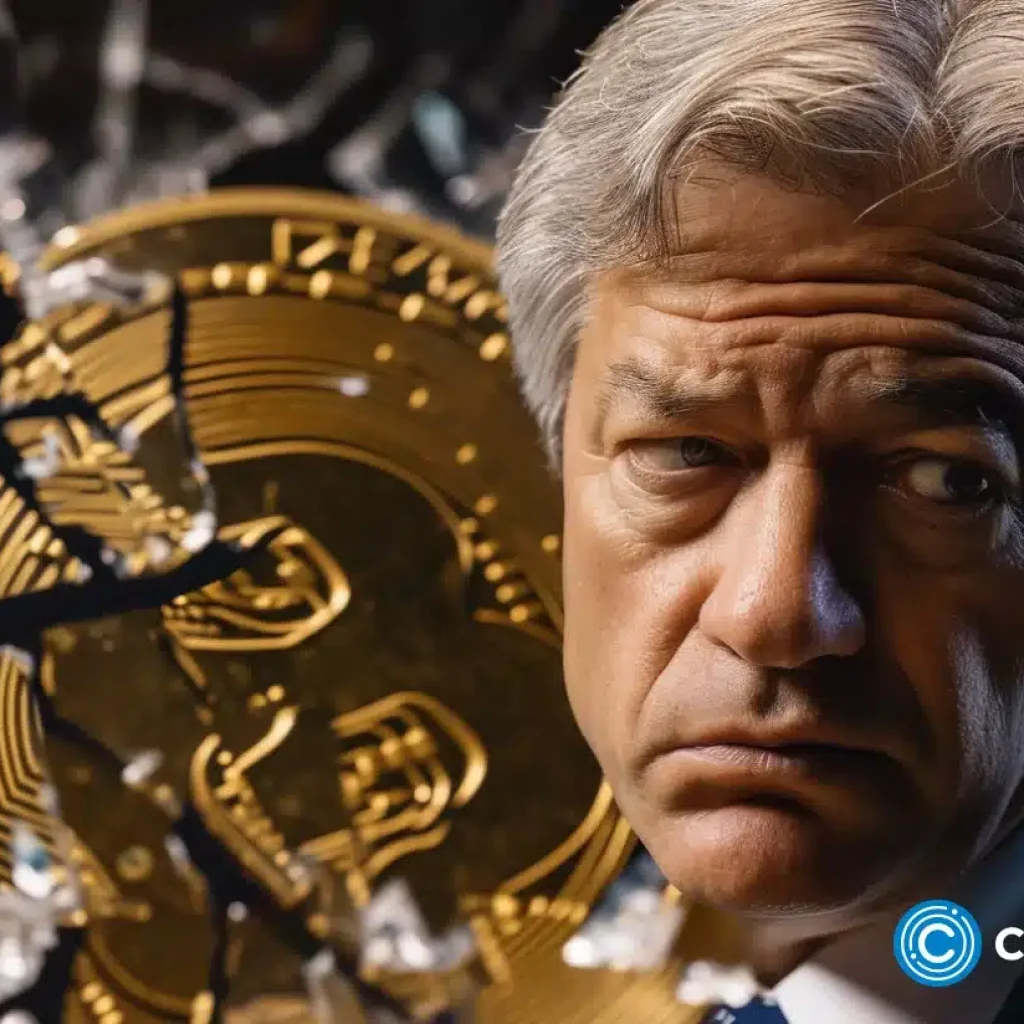Jamie Dimon, the robust and assertive CEO of JPMorgan, has decided to part ways with a whopping 1 million shares in the bank, marking a historic departure from his previous investment stance.
After almost two decades of unwavering loyalty and accumulation, Dimon’s move is nothing short of monumental in the financial world.
As it stands, this transaction could fatten his pockets by over $140 million, although he and his kin will still retain a hefty 7.6 million shares, holding the fort with a combined worth of $1.4 billion, options included.
This sale isn’t just about the numbers; it’s a pivotal moment that raises eyebrows and sparks speculation about Dimon’s future in the company and the reasons behind this financial reshuffle.
In an official statement, JPMorgan framed this sale as a strategy for “financial diversification and tax-planning purposes.” Yet, the underlying message was clear: Dimon is still all in on JPMorgan, believing wholeheartedly in its robust prospects.
Unraveling Dimon’s Motives
However, this story is not a straight line. While the official line talks about financial wisdom and planning, we can’t help but wonder if this is the prelude to a bigger shift.
Wall Street is buzzing with speculation, particularly when you juxtapose this sale with the recent announcement from James Gorman, Dimon’s counterpart at Morgan Stanley, about his impending departure as CEO.
For years, JPMorgan has boasted about Dimon’s unwavering commitment, highlighting that he never sold a single share. So why now?
The spokesperson for JPMorgan was quick to quash any succession speculation, stating this sale doesn’t signal any change in leadership plans and Dimon isn’t gearing up for any more sales soon.
However, at 67 years old, Dimon’s tenure in the financial world is undeniable, and this move could be seen as a strategic play, setting the stage for future financial stability.
A Look at Dimon’s Legacy and Future Prospects
Dimon’s journey with JPMorgan started back in 2004, and by 2006, he had climbed to the very top, serving as CEO, Chair, and President.
He has always been a stalwart supporter of holding company stock, a tradition instilled by his mentor Sandy Weill at Citigroup. This recent sale represents a stark departure from that tradition, a move that even Wall Street veterans did not see coming.
While other executives sold shares post-financial crisis, Dimon held his ground. His commitment even included a personal investment in 2016, where he bought 500,000 shares for over $25 million.
Since then, JPMorgan’s stock has soared by 160%. During a May 2022 investor day, Dimon was still singing praises of JPMorgan shares, showcasing his unwavering belief in the company’s value.
However, Dimon has also shown signs of concern, especially with recent proposals for new capital rules by US regulators, which he believes could jeopardize the attractiveness of bank stocks.
These concerns, coupled with his substantial payout of $34.5 million for 2022, paint a complex picture of a man at the crossroads. In the end, while this sale might seem like a financial and strategic play, it’s impossible to ignore the underlying currents of change and uncertainty.
Dimon’s legacy at JPMorgan is solid as a rock, but even rocks can erode over time. What remains to be seen is how this sale will influence JPMorgan’s future and Dimon’s place within it.





